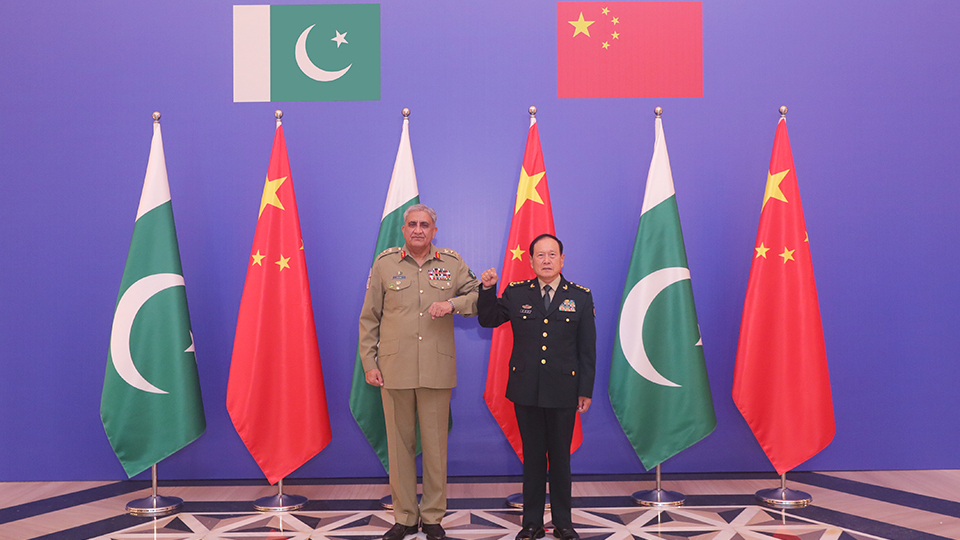By Gong Qifang
On August 9, Richard Grenell, US ambassador to Germany, once again threatened to shift the US troops stationed in Germany to Poland because German Chancellor Angela Merkel was unwilling to raise the military spending to 2% of Germany's GDP in a short period of time against the demands made by US President Donald Trump.
The remarks having the implication of an ultimatum quickly incurred Germany’s criticism. Dietmar Bartsch, a member of the Germany's opposition socialist Left party, mocked: “I hope that the US remembers to take the nuclear bombs deployed in Germany away when it withdraws its troops from Germany."
In fact, the US has long been dissatisfied with Germany’s defense expenditure. In terms of deficiency in military spending, Germany with the largest number of the US troops in Europe was regarded as a "negative example" by US President Trump. The US has repeatedly accused Germany of "profiting at the US’ expense" and "owing the North-Atlantic Treaty Organization (NATO) money" while under its protection.
In return, Germany has repeatedly accused the US of inconsistency in words and deeds, expressing that although it agrees with the requirement of 2%, it is only going to act after calculating its resources. Faced with hard pressure and threats from the US, objections in Germany keep emerging, as these are regarded as the US’ extortion of Germany.
The US is pressing so hard, causing the widespread suspicion that it is about to tie its ally to its "fighting vehicle" of seeking dominance in the world. The US has always regarded its huge overseas garrison as an important pillar for controlling the world, and also as a tool for the US to dominate the world to obtain rights and interests of excess dominance.
The presence of the US troops in other countries is essentially to defend the interests of the US dominance across the world, despite the declaration that its overseas troops are mainly to “protect” the stationed countries. Germany is not the only country arbitrarily blamed by the US for the ratio of the spending on overseas troops among the national defense expenditure.
On the other hand, Germany, the largest economy in Europe, has been in constant altercation with the US due to its "under-standard" defense expenditure, and this also reflects its comprehensive consideration of the security situation both at home and abroad.
In recent years, the tension between the NATO-Russia relations have continued to exist; the extreme terrorist forces represented by the “Islamic State” (IS) have been on the rise; the issues of refugee and immigration have brought great impact to the German society in multiple aspects; and populist forces are waiting for an opportunity to make troubles again. Germany and other European Union (EU) countries have been exploring how to improve their security management capabilities for both their own nations and the EU borders.
In this context, Germany’s willingness to strengthen the EU defense integration and European solidarity grows stronger and stronger, and it supports the establishment of the European Defense Alliance, so as to take the lead in international crisis resolution with “no need for the US”.
In addition, it is an embarrassment to Germany’s deficiency in national defense expenditure that divides the US and Germany because it cannot afford to meet the country’s financial obligations regarding defense.
According to Germany's 2018 budget, the defense budget accounts for 1.24% of its GDP. Therefore, the existing defense budget has to be raised substantially if Germany is to achieve its goal of defense expenditure accounting for 2% of its GDP in 2024.
At the present stage, the German government is expected to face a budget gap by 2023, as there is a trend of economic slowdown in Germany. Therefore, there are great concerns about whether its defense budget can be greatly increased.
The constant controversies surrounding the defense expenditure reflect the growing contradiction between the US and Germany. After the Trump administration took office, holding high the banner of "America first", the US has taken the road of unilateral egoism, ignoring the core interest and demands of its allies. The US-Germany relationship gets soured in terms of issues related to tariff, Iranian nuclear deal and energy cooperation with Russia.
Although the NATO is still the cornerstone to safeguard German security in a profound sense, the relationship between the US and Germany may not deteriorate qualitatively for a long period of time. However, it is undeniable that the constant irritations from the US have given rise to the continuous emergence of bilateral cracks, which are hard to be bridged.











